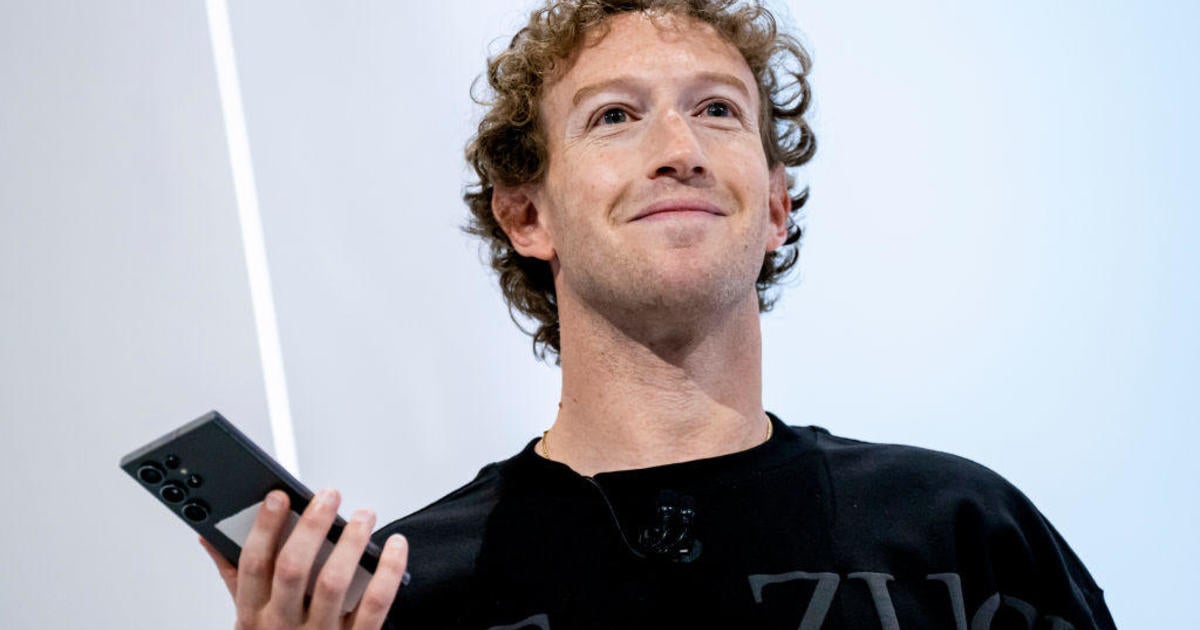Meta's Controversial Decision: Fact-Checkers Push Back Against Censorship Claims
Hold on to your hats, folks, because the internet is abuzz! Meta, the social media giant, has just dropped a bombshell decision that has sent ripples through the world of online content moderation and free speech. Mark Zuckerberg, Meta's CEO, announced that fact-checking efforts on Facebook and Instagram will be significantly scaled back, a move he claims will 'dramatically reduce the amount of censorship.' But hold your horses— Meta's fact-checking partners are crying foul! Are we about to enter a wild west era of unchecked misinformation online? Or is Zuckerberg simply using censorship as a scapegoat for other issues?
Fact-Checking: Censorship or Essential Information?
Meta's decision has ignited a firestorm of debate. Zuckerberg frames the move as necessary to preserve free speech, stating that the current process amounts to too much censorship of harmless content. But the third-party fact-checking organizations partnered with Meta tell a different story. In a strong rebuttal, they are pointing out that their role was to provide information, context, and fact-checking, and NOT remove content. Their role in content removal was nonexistent. They maintain that identifying and labeling false or misleading information helps users make more informed decisions.
What is Fact-Checking and Why Does it Matter?
Fact-checking involves investigating and verifying information presented by news and media outlets or prominent figures on social media platforms. In essence, fact-checkers act as a digital watchdog, examining claims and determining their veracity before those claims spread and potentially harm the public. Organizations like PolitiFact and FactCheck.org employ rigorous processes to confirm the accuracy of information. In an era where misinformation proliferates rapidly, this form of independent assessment proves more crucial than ever. Fact-checking sites do not interfere with Meta’s moderation decisions; they are separate and distinct.
Meta's Response: A Shift Towards Community Moderation
Meta asserts that it's transitioning towards a community-driven moderation model, similar to what you see on X (formerly Twitter). This would involve empowering social media users themselves to identify and flag misleading content and will focus on issues involving actual harm, abuse, hate speech and other serious offenses. But several fact-checkers express skepticism over this new strategy. Their reservations focus on the logistical complexities, potential bias in communal input, and concerns over the speed and accuracy of this model.
The Impact of Meta's Decision on Misinformation
What will be the outcome of removing these non-partisan third party fact-checkers from the equation? What effect will this have on users' ability to determine what content they are seeing is accurate or inaccurate? How does it affect the level and spread of misinformation in a time where so many people get their news and information from social media platforms such as Facebook and Instagram?
The Truth About 'Facebook Jail'
Meta also mentions the plight of individuals mistakenly flagged for posting supposedly inappropriate material – ending up in so-called "Facebook Jail." It paints this as further evidence of excessive censorship. While cases of mistaken bans undoubtedly exist, the focus is now on Meta deciding unilaterally on what should be classified as potentially harmful information that must be removed, with no other fact-checkers to provide a second set of eyes and counterbalance any possible political bias. This makes Meta's move toward Community Notes potentially more dangerous because the lack of moderation might become far more harmful and leave more room for the spread of false or potentially harmful claims and misinformation, precisely what Meta states their changes seek to remedy.
Long-Term Concerns and the Future of Online Information
Meta’s decision raises long-term concerns about the reliability and quality of information available online. Critics raise worries about a potential increase in disinformation campaigns, scams, health misinformation, and manipulation of public opinion, as fact-checking mechanisms get downplayed or shut down. A move such as this opens doors to foreign influence and misinformation as well.
Conclusion: Take Away Points
Meta's decision to discontinue fact-checking on its platforms, while presented as a step toward protecting free speech, has been met with criticism from fact-checking organizations. These organizations were clear in stating that their role is solely to provide factual information, and this should not be conflated with the censorship that comes when content gets taken down from the platform. This choice could lead to a substantial increase in misinformation and a degradation of the quality of information that consumers are exposed to, and will ultimately have far-reaching implications for users' trust and public discourse. Whether the Community Notes feature can successfully replace traditional fact-checking in maintaining information integrity remains to be seen. As more questions and clarifications arise and we observe the long-term implications of Meta's change in approach, it will be interesting to see how this impacts trust in social media, political debate and even democratic processes. The need to distinguish between accurate reporting and misinformation continues to be crucial, especially in today’s digital world. And while freedom of speech is a vital tenet, ensuring a space where facts are verifiable and trustworthy remains vital as well. These remain significant challenges for the social media platforms and organizations going forward.




